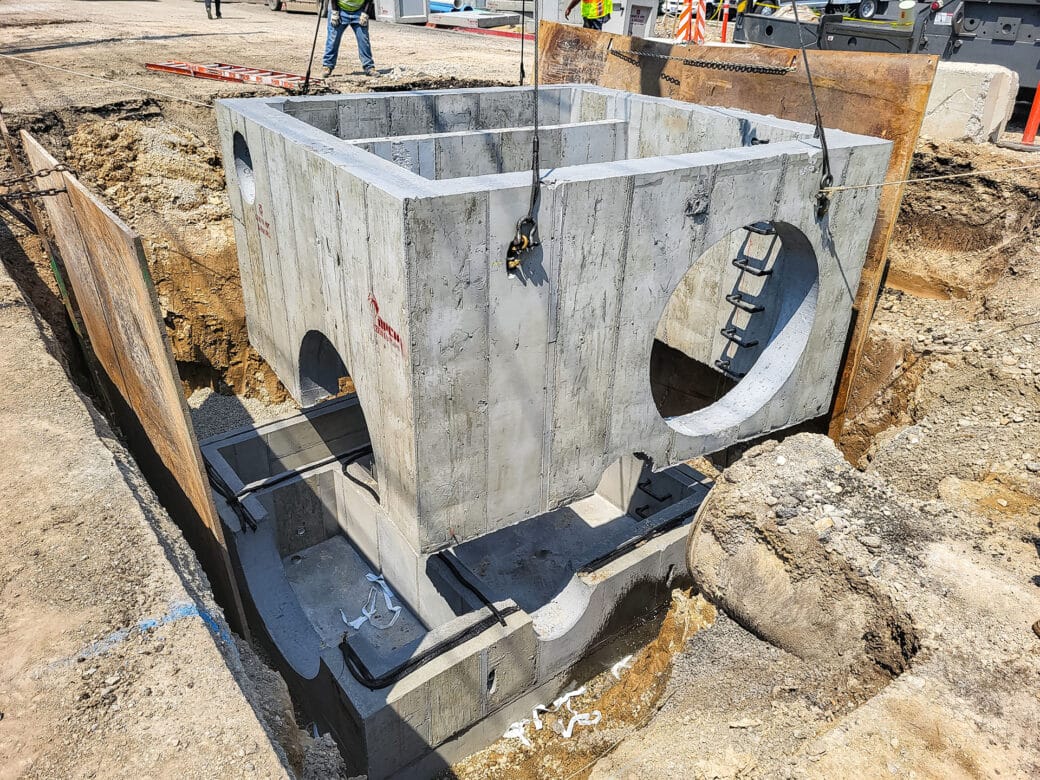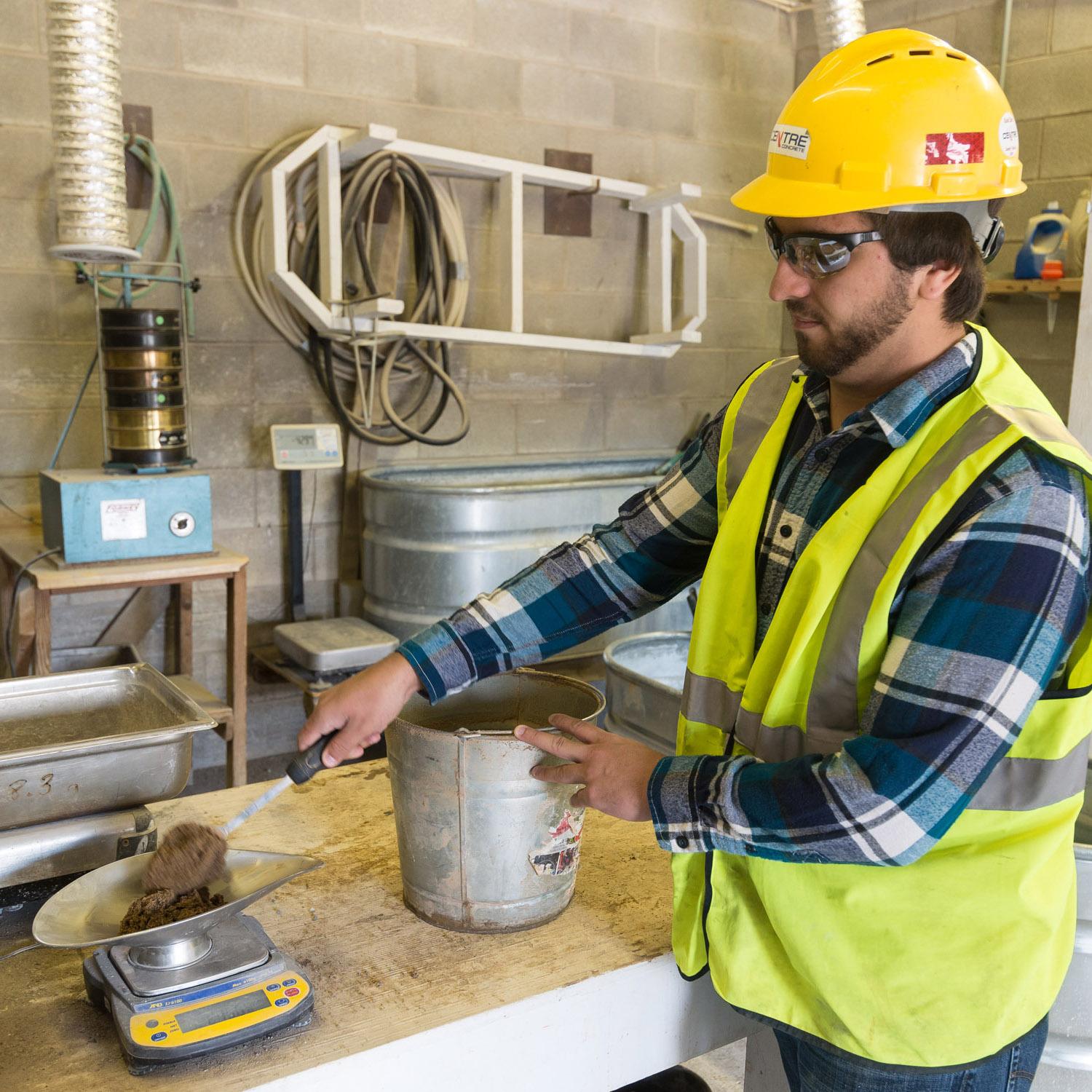What Makes WCGE commercial concrete a Reliable Choice for Commercial Development?
What Makes WCGE commercial concrete a Reliable Choice for Commercial Development?
Blog Article
The Vital Duty of Concrete Structure in Structural Integrity and Longevity
When it concerns building a home, the foundation is a lot more crucial than you may think. Concrete foundations offer unparalleled toughness and sturdiness, guaranteeing your framework can hold up against various ecological challenges. Without a strong base, you run the risk of possible issues like changing or breaking, which can compromise safety and security and value. Understanding the subtleties of concrete structures can be the secret to preserving your financial investment for many years to come. So, what should you think about next?
Recognizing the Value of Concrete Foundations
Concrete foundations are crucial to the general security of any type of structure, as they offer the crucial assistance required to hold up against different tons and environmental problems. When you assume regarding developing a home or an industrial area, the structure is the initial thing you should consider. It functions as a barrier against dampness, protecting your building from water damages. A well-placed concrete structure also stops settling and changing, which can bring about fractures in wall surfaces and floors. You'll intend to assure that the foundation is effectively developed and strengthened, as this affects the durability of your building. In addition, a solid structure can boost energy effectiveness by lowering air leakages. Keep in mind, disregarding the value of a concrete foundation can cause pricey repair work down the line. Investing in a quality structure upfront is necessary for the honesty and longevity of your structure.
Benefits of Concrete Structures for Architectural Stability
While several elements add to a structure's structural integrity, concrete structures provide unmatched longevity and strength. You'll value that concrete can withstand extreme weather, resisting both moisture and temperature level changes. This strength means your framework is less likely to experience fracturing or moving over time, which can endanger its safety.Additionally, concrete's integral weight gives a solid base, stopping motion during natural events like earthquakes or floods. When you pick a concrete structure, you're also going with low maintenance; unlike wood, it won't rot or attract pests, saving you money and time in repairs.Moreover, concrete's fire resistance provides included safety and security, guaranteeing your framework can sustain high temperature levels without substantial damages. On the whole, buying a concrete structure implies you're focusing on the long-term security and stability of your building, making it a wise choice for any kind of building and construction task.
Common Kinds of Concrete Foundations
When it pertains to developing structures, comprehending the usual types of concrete structures can help you make educated choices for your project. One of the most widespread kinds consist of slab-on-grade, crawl space, and full basement foundations.A slab-on-grade structure is a simple, cost-efficient choice, where a thick concrete slab is poured directly on the ground. This type functions well in cozy climates, as it reduces heat loss.Crawl room foundations raise the home somewhat over ground, permitting air flow and access to plumbing and electric systems. This layout can help avoid moisture issues.Full cellar structures use added living or storage room while giving superb architectural support. They need even more excavation and are generally utilized in colder environments to protect against frost heave.
Elements to Consider When Creating a Concrete Foundation

Exactly how do you assure your concrete structure meets the certain demands of your task? Begin by examining soil conditions, as they directly affect your structure's security. Conduct a soil examination to identify its bearing ability, wetness levels, and composition; this will inform your style selections. Next off, consider the tons your structure will impose. Heavy structures need deeper or strengthened foundations, while lighter structures may need less.Don' t forget regional climate and environmental elements. Freeze-thaw cycles, drainage, and seismic task can influence your foundation's durability.You must likewise consider the structure type-- whether piece, crawl room, or cellar-- based on your job's needs and budget. Assurance compliance with neighborhood structure codes, as they give vital guidelines for safety and security and efficiency. By taking these variables right into account, you can develop a concrete foundation that guarantees your structure's honesty and durability.
Finest Practices for Putting Up Concrete Foundations
When you're mounting a concrete foundation, proper website prep work is essential to guarantee security (West Coast General Engineering concrete foundation Rancho Cucamonga). You'll additionally require to recognize reinforcement methods to boost strength and toughness. Lastly, do not overlook the curing process, as it plays an essential role in attaining a strong structure
Website Prep Work Value
It may seem uncomplicated, appropriate site prep work is vital for ensuring a solid and resilient concrete foundation. Start by getting rid of the area of any kind of debris, plants, or natural product that can endanger the foundation's stability. Next off, examine the soil type and compaction; you might need to excavate or add products to create a secure base. Degree the ground to assure also weight distribution and stay clear of clearing up issues later on. Mounting appropriate water drainage systems is also essential to avoid water buildup, which can deteriorate the structure in time. Mark out the foundation's dimensions precisely to lead the putting process. By following these actions, you'll set the phase for a successful concrete structure that stands the test of time.
Reinforcement Methods Clarified
As soon as the site is appropriately prepared, the following action in guaranteeing a tough concrete structure involves implementing reliable reinforcement strategies. You must start by utilizing steel rebar, which offers tensile strength and aids stop splitting. Lay the rebar in a grid pattern, ensuring it rises utilizing spacers to preserve appropriate coverage. Furthermore, take into consideration making use of cable mesh for extra support, specifically in areas based on hefty tons. Don't neglect to link the rebar junctions safely with cable. For larger foundations, fiber reinforcement can boost sturdiness, minimizing the threat of shrinking splits. Constantly follow neighborhood building regulations and standards to make certain conformity. By applying these reinforcement techniques, you'll substantially increase your structure's strength and durability, laying a solid foundation for your framework.
Healing Refine Essentials
To assure your concrete structure treatments effectively, it is essential to keep adequate dampness and temperature level problems instantly after pouring. Begin by covering the surface area with a damp burlap or plastic bed linen to keep wetness. This maintains the concrete hydrated, avoiding fractures and making sure stamina. You ought to also monitor the temperature; find out here optimal curing problems are in between 50 ° F and 90 ° F. If it's as well warm, mist the surface area regularly to avoid quick evaporation. For cold weather condition, take into consideration utilizing insulating blankets to maintain warmth. Go for a curing duration of a minimum of 7 days, as this is important for optimum stamina growth. By complying with these best techniques, you'll boost your structure's sturdiness and longevity, guaranteeing structural stability for several years to come.
Upkeep of Concrete Structures for Long Life
To keep your concrete foundation solid and enduring, routine examinations are essential. You ought to additionally assure effective drainage solutions are in location to stop water damages. If you identify any type of cracks, resolving them immediately will save you from bigger troubles down the line.

Routine Inspections and Analyses
While normal evaluations and assessments might seem like a chore, they're important for maintaining the stability of your concrete structure. By consistently checking for fractures, shifts, or indications of wear, you can capture potential problems prior to they escalate right into pricey repair services. Seek any water pooling around the foundation or unusual settling, as these can signify underlying problems. It's additionally smart to keep track of any kind of adjustments in your house's structure, like doors that stick or windows that do not open efficiently. Keeping a record of your examinations helps track adjustments in time, enabling positive maintenance. Inevitably, these assessments guarantee your structure remains stable, supporting the long life and safety of your entire framework. Don't overlook this essential element of homeownership!
Efficient Drain Solutions
Normal inspections can expose issues like drain troubles that could jeopardize your concrete structure's stability. To stop water accumulation, guarantee your gutters and downspouts direct water away from the structure. Installing French drains can effectively reroute read the article surface area and groundwater, minimizing stress on your foundation walls. Additionally, grading the dirt around your home assists ensure that water flows away, as opposed to merging near your foundation.Consider using sump pumps in areas vulnerable to flooding, as they proactively eliminate you could look here excess water. On a regular basis look for clogs in drain systems and clear them quickly. You'll protect your foundation's integrity and longevity by taking these aggressive measures. Bear in mind, reliable drain remedies are vital for keeping a strong, sturdy concrete structure.
Trigger Fracture Repairs
When you observe cracks in your concrete foundation, resolving them promptly is necessary for keeping its long life. Little cracks can promptly develop into larger concerns, compromising the structural honesty of your home. On a regular basis examine your foundation for indicators of damage, such as horizontal or vertical cracks. If you spot any kind of, don't wait-- fix them quickly. You can use epoxy injections or concrete patching compounds, which are efficient for sealing cracks. Always follow the supplier's guidelines and take into consideration consulting a specialist for considerable damage. Keep in mind, timely repairs not only boost your foundation's longevity yet likewise conserve you money in the future by avoiding much more comprehensive fixings down the line. Keep proactive, and your foundation will stay solid and secure.
Addressing Typical Concerns With Concrete Structures
Concrete foundations can face different issues with time, making it essential to determine and resolve them promptly. Among the most common problems is splitting, which can occur due to temperature level changes or resolving dirt. If you notice splits, it's important to analyze their dimension and deepness; little fractures can frequently be sealed, while bigger ones may need specialist evaluation.Water intrusion is another major issue. Excess dampness can bring about mold development and architectural deterioration. Assurance correct drainage around your foundation to minimize this danger. Additionally, search for signs of changing or bowing walls, as this can suggest underlying problems with your structure's stability.Regular inspections are basic to capture these troubles early. If you detect any worrying signs, don't hesitate to consult a foundation professional. By remaining positive, you can maintain the honesty and long life of your concrete foundation, ensuring your home continues to be safe and safe.
Regularly Asked Concerns
How Does Soil Type Impact Concrete Structure Performance?
Dirt type significantly impacts concrete structure efficiency. If you have actually got expansive clay, for example, it can create moving and breaking. Sandy dirt could cause resolving. Comprehending your soil helps ensure a secure structure.
Can Concrete Foundations Be Repaired if Harmed?
Yes, you can repair damaged concrete foundations. Depending on the level of the damage, strategies like epoxy injection or slab jacking can recover security. It's ideal to seek advice from a professional for reliable options.
What Is the Normal Lifespan of a Concrete Structure?
A concrete structure typically lasts 30 to 100 years, relying on elements like soil problems, climate, and maintenance. You'll wish to keep an eye on it to ensure it continues to be in excellent form throughout its life expectancy.
Are There Option Materials to Concrete for Foundations?
Yes, there are alternatives to concrete for foundations, like steel, lumber, or perhaps recycled materials. Each alternative has unique benefits and drawbacks, so you must consider your task's certain requirements when picking the best product.
Just How Does Environment Influence Concrete Foundation Durability?
Environment greatly influences concrete foundation durability (West Coast General Engineering Concrete). Extreme temperature levels, dampness, and freeze-thaw cycles can damage the material, causing fractures and structural problems. You must take into consideration local climate problems when preparing your structure to guarantee lasting performance Report this page